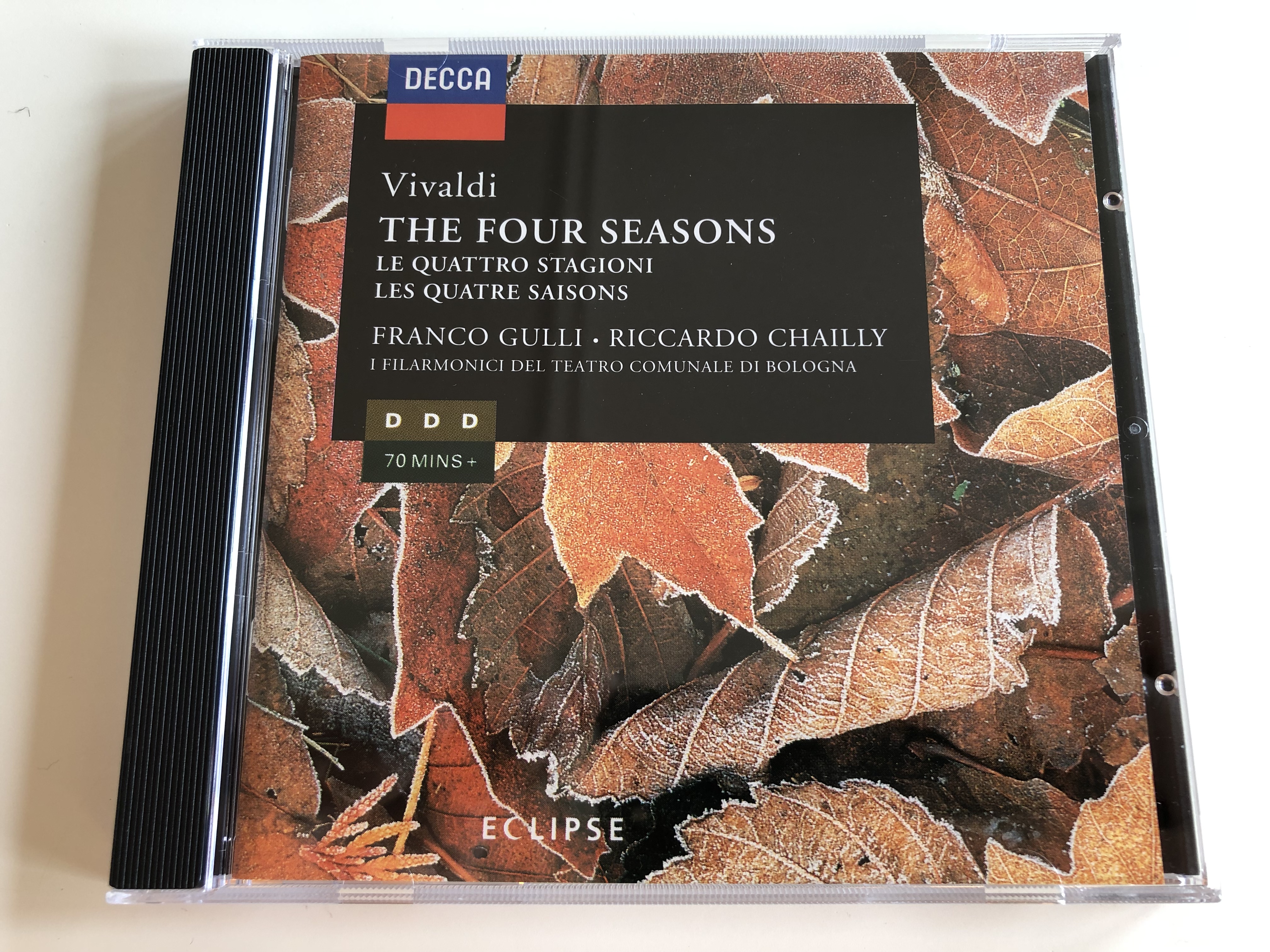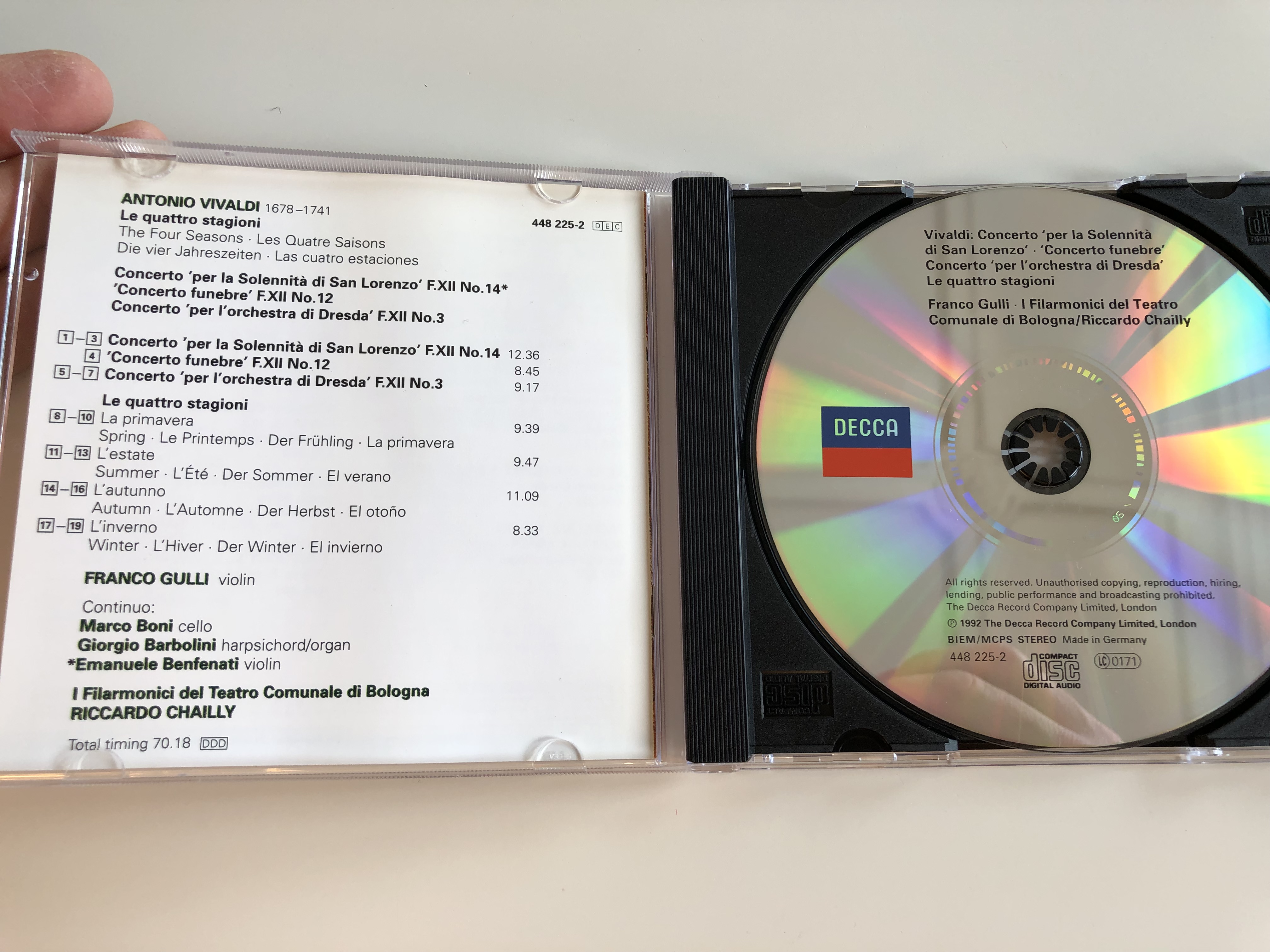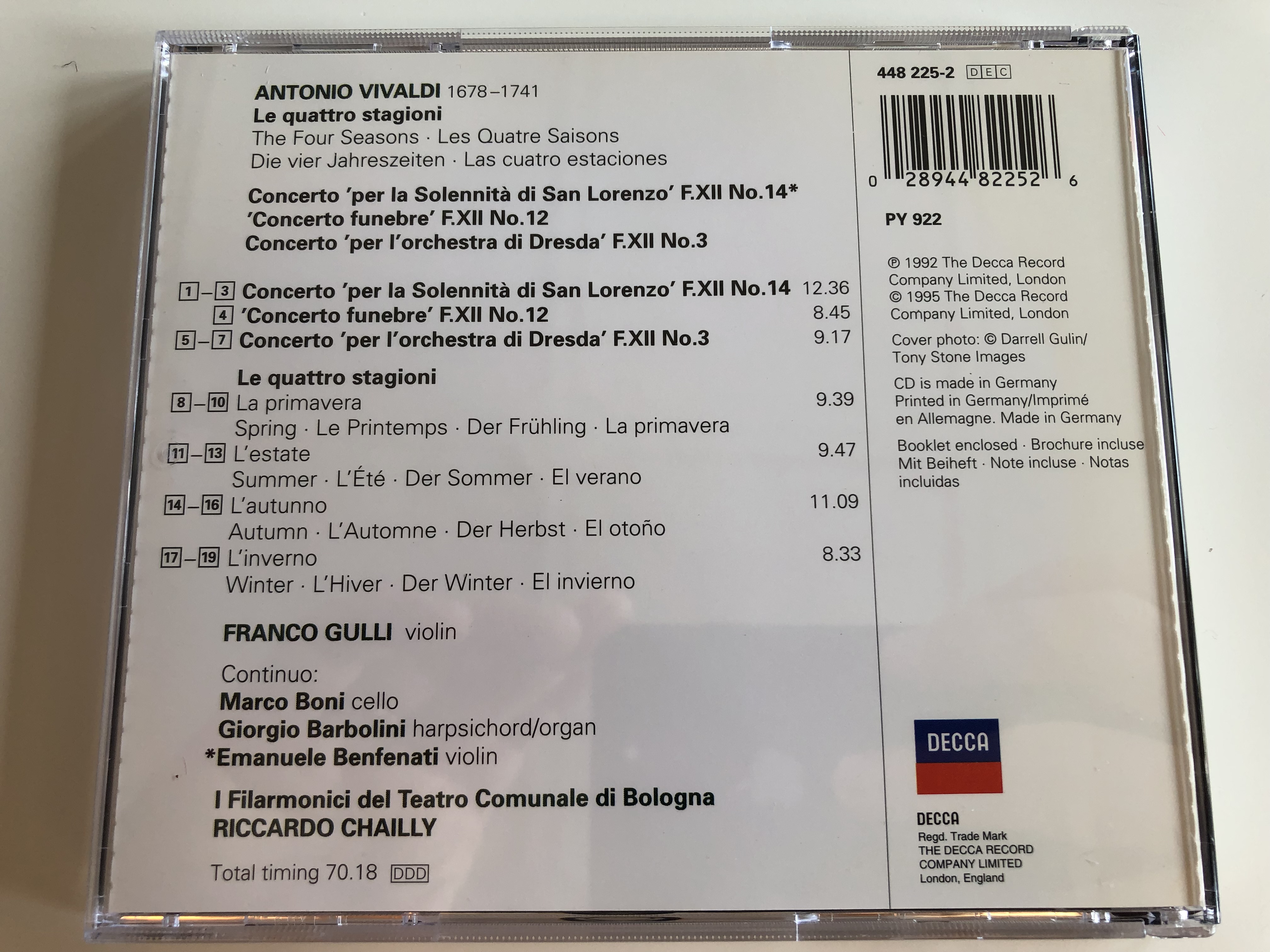Product Overview
Decca - Vivaldi THE FOUR SEASONS
LE QUATTRO STAGIONI, LES QUATRE SAISONS
FRANCO GULLI - RICCARDO CHAILLY
I FILARMONICI DEL TEATRO COMUNALE DI BOLOGNA
AUDIO CD 1992
UPC 028944822526
CD is Made in Germany
Tracklist:
ANTONIO VIVALDI 1678-1741
Le quattri stagioni
The four Seasons - Les Quatre Saisons
Die vier Jahreszeiten - Las cuatro estaciones
1-3. Concerto 'per la Solennitá di San Lorenzo' F.XII No. 14 12:36
4. 'Concerto funebre' F.XII No.12 8.45
5-7. Concerto 'per L'orchestra di Dresda' F.XII No.3 9:17
Le quattro stagioni
8.-10. La primavera 9:39
Spring - Le Printemps - Der Frühling - La primavera
11-13. L'estate 9:47
Summer - L'Été - Der Sommer - El verano
14-16. L' autunno 11:09
Autumn - L'Automne - Der Herbst - El otono
17-19. L'inverno 8:33
Winter - L'Hiver - Der Winter - El invierno
FRANCO GULLI VIOLIN
CONTINUO:
MARCO BONI: CELLO
GIORGIO BARBOLINI: HARPSICHORD/ORGAN
EMMANUELE BENFENATI: VIOLIN
I FILARMONICI DEL TEATRO COMUNALE DI BOLOGNA
RICCARDI CHAILLY
TOTAL TIMING: 70:18
Antonio Lucio Vivaldi (4 March 1678 – 28 July 1741) was an Italian Baroque musical composer, virtuoso violinist, teacher, and priest. Born in Venice, the capital of the Venetian Republic, he is regarded as one of the greatest Baroque composers, and his influence during his lifetime was widespread across Europe. He composed many instrumental concertos, for the violin and a variety of other instruments, as well as sacred choral works and more than forty operas. His best-known work is a series of violin concertos known as the Four Seasons.
Many of his compositions were written for the all-female music ensemble of the Ospedale della Pietà, a home for abandoned children. Vivaldi had worked there as a Catholic priest for 1 1/2 years and was employed there from 1703 to 1715 and from 1723 to 1740. Vivaldi also had some success with expensive stagings of his operas in Venice, Mantua and Vienna. After meeting the Emperor Charles VI, Vivaldi moved to Vienna, hoping for royal support. However, the Emperor died soon after Vivaldi's arrival, and Vivaldi himself died, in poverty, less than a year later.
The Four Seasons (Italian: Le quattro stagioni) is a group of four concerti grossi by Italian composer Antonio Vivaldi, each of which gives musical expression to a season of the year. They were written around 1716-1717 and were published in 1725 in Amsterdam, together with eight additional concerti grossi, as Il cimento dell'armonia e dell'inventione ("The Contest Between Harmony and Invention").
The Four Seasons is the best known of Vivaldi's works. Though three of the concerti are wholly original, the first, "Spring", borrows motifs from a Sinfonia in the first act of Vivaldi's contemporaneous opera Il Giustino. The inspiration for the concertos is not the countryside around Mantua, as initially supposed, where Vivaldi was living at the time, since according to Karl Heller they could have been written as early as 1716-1717, while Vivaldi was engaged with the court of Mantua only in 1718. They were a revolution in musical conception: in them Vivaldi represented flowing creeks, singing birds (of different species, each specifically characterized), a shepherd and his barking dog, buzzing flies, storms, drunken dancers, hunting parties from both the hunters' and the prey's point of view, frozen landscapes, and warm winter fires.
Unusually for the period, Vivaldi published the concerti with accompanying sonnets (possibly written by the composer himself) that elucidated what it was in the spirit of each season that his music was intended to evoke. The concerti therefore stand as one of the earliest and most detailed examples of what would come to be called program music—i.e., music with a narrative element. Vivaldi took great pains to relate his music to the texts of the poems, translating the poetic lines themselves directly into the music on the page. For example, in the middle section of the Spring concerto, where the goatherd sleeps, his barking dog can be heard in the viola section. The music is elsewhere similarly evocative of other natural sounds. Vivaldi separated each concerto into three movements (fast–slow–fast), and, likewise, each linked sonnet into three sections.












